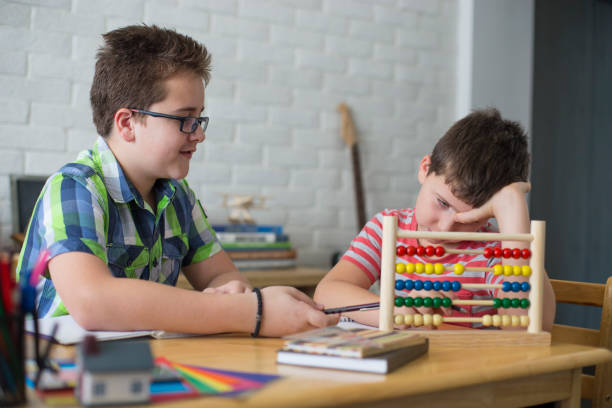If your child has difficulty with motor skills and coordination, they may have a condition called developmental coordination disorder (DCD). DCD is a neurodevelopmental disorder that affects how the brain plans and executes movements. It can impact various aspects of learning and daily activities, such as writing, dressing, playing, and sports. In this blog post, we will provide some practical tips and strategies for parents and educators to help kids with DCD. We will also introduce you to a platform that offers fun and engaging games for special education and physiotherapy: wondertree.co.
What is DCD and how does it affect children?
DCD is a common condition that affects about 5-6% of school-aged children, more often boys than girls. It is not caused by any known physical, neurological, or behavioral disorder, but it may co-occur with other conditions such as dyslexia, ADHD, or autism spectrum disorder. When it comes to our children, we want nothing but the best for them. We yearn to see them grow, thrive, and conquer the world with their unique talents and abilities. However, sometimes we may encounter challenges along the way that require our understanding and support. Developmental Coordination Disorder (DCD), also known as dyspraxia, is one such challenge that some children face. This condition affects their ability to plan and execute movements smoothly, making even simple tasks feel overwhelming and frustrating. As parents, it can be heartbreaking to witness our children struggle, but it’s important to remember that they are not defined by this disorder. By offering them compassion, patience, and the right guidance, we can help them navigate the world and discover their own remarkable potential. DCD can affect children’s academic performance, social interaction, and emotional well-being. Therefore, it is important to provide them with appropriate support and intervention to help them overcome their difficulties and reach their full potential.Treatments for Kids with DCD
How can physical therapy and occupational therapy help kids with DCD?
Physical therapy (PT) and occupational therapy (OT) are the main treatments for DCD. They aim to improve children’s motor skills and coordination through various techniques and strategies. PT focuses on enhancing gross motor skills and physical fitness, while OT focuses on enhancing fine motor skills and functional activities. PT and OT can take place at school as part of an individualized education program (IEP) or a 504 plan, or with a private therapist. The therapist will assess the child’s strengths and needs, set goals, and design a personalized intervention plan. The intervention may include:- Exercises to improve strength, flexibility, balance, endurance, and coordination
- Activities to improve sensory processing, body awareness, and motor planning
- Games to practice specific skills or movements in a fun and motivating way
- Feedback to correct errors and reinforce success
- Adaptations or modifications to the environment or the task to make it easier or more comfortable
- Assistive technology or devices to help with writing, typing, or other tasks
How can assistive technology and classroom accommodations help kids with DCD?
Assistive technology (AT) and classroom accommodations are another important support for kids with DCD. They can help them overcome some of the challenges they face in school tasks that require motor skills or coordination. AT refers to any tool or device that helps a child perform a task more easily or efficiently. Classroom accommodations refer to any changes or adjustments to the environment or the task that help a child learn better. Some examples of AT and classroom accommodations for kids with DCD are:- Dictation software or speech-to-text apps that allow the child to speak instead of write
- Keyboarding software or apps that teach the child how to type effectively
- Word prediction software or apps that suggest words as the child types
- Electronic organizers or planners that help the child keep track of assignments and deadlines
- Pencil grips or ergonomic pens that make writing more comfortable
- Slanted boards or desk supports that improve posture and hand position when writing
- Lined paper or graph paper that provides visual cues for spacing and alignment when writing
- Highlighters or colored pencils that help the child organize information when reading or taking notes
- Extra time or reduced workload for assignments that involve writing or motor skills
- Alternative ways of demonstrating knowledge or skills, such as oral presentations or portfolios
How can fun activities at home improve motor skills and coordination?
Another way to support kids with DCD is to engage them in fun and simple activities at home that can improve their motor skills and coordination. These activities can be done with everyday objects or toys and can be incorporated into the daily routine or playtime. Some examples of activities that can improve fine motor skills are:- Playing with playdough, clay, or slime
- Stringing beads, buttons, or pasta
- Cutting, gluing, or folding paper
- Drawing, coloring, or painting
- Doing puzzles, mazes, or dot-to-dots
- Building with Lego, blocks, or magnets
- Playing catch, toss, or frisbee
- Jumping rope, hopscotch, or skipping
- Riding a bike, scooter, or rollerblade
- Dancing, yoga, or aerobics
- Balancing on a beam, board, or pillow
- Crawling through a tunnel, under a table, or over a couch







